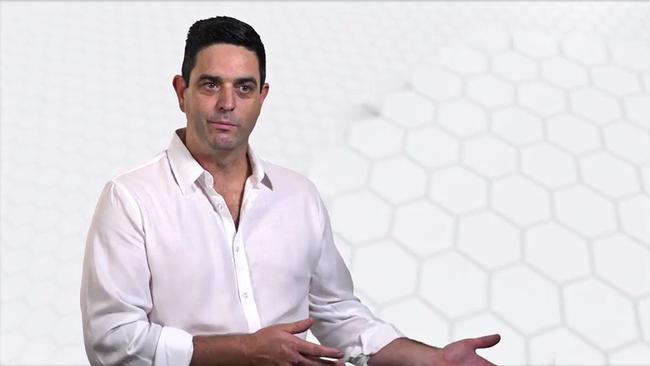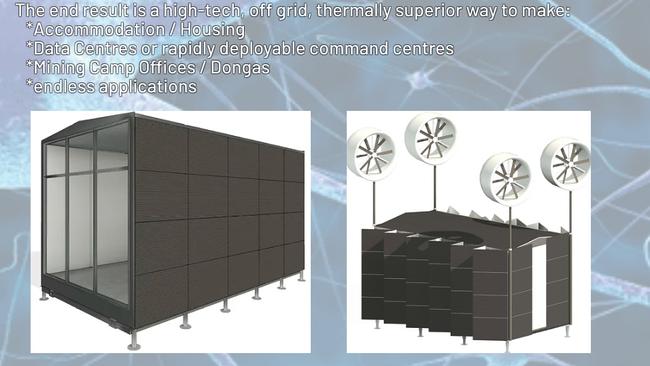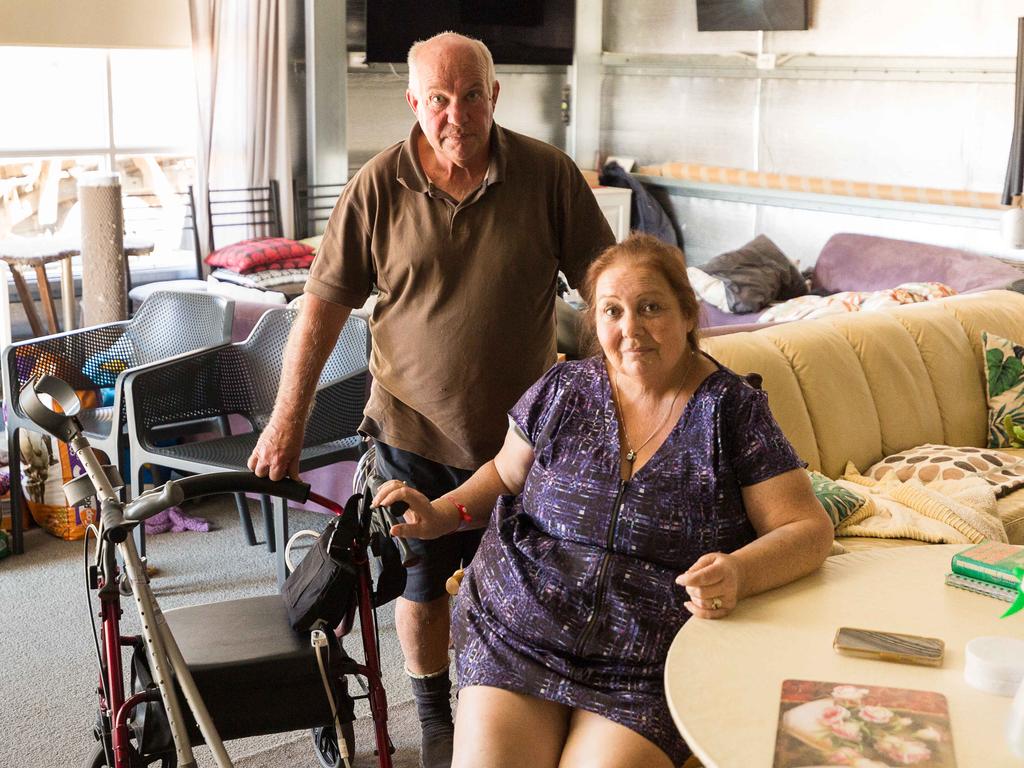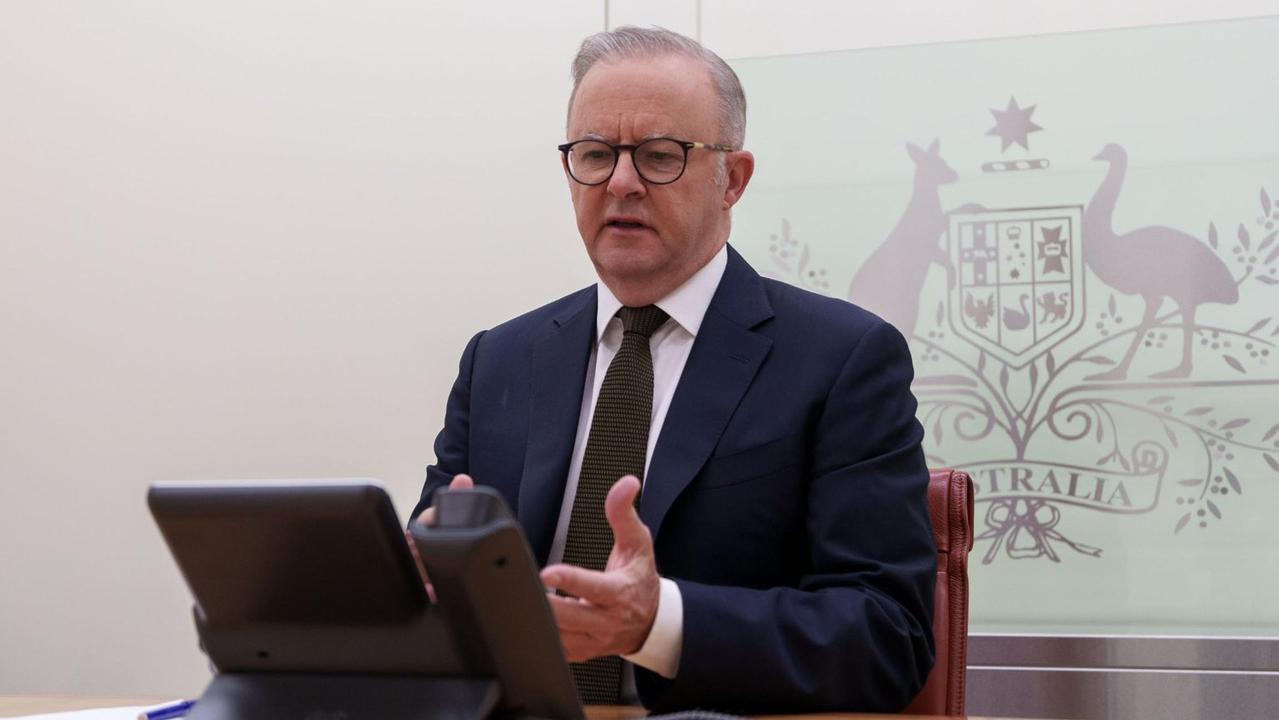Atomic 6 boss Andrew Lennox linked to critical infrastructure start-up Cranium Technology
An unlicensed property entrepreneur who vanished after pocketing the insurance payouts of victims of the Black Summer bushfires is now attempting to sell critical infrastructure to developing nations.

An unlicensed property entrepreneur who vanished after pocketing the insurance payouts of victims of the Black Summer bushfires is now involved with a company that is attempting to sell critical infrastructure to developing nations.
The Australian can reveal that Atomic 6 founder Andrew Lennox, who owes money in Victoria, NSW and Western Australia, is at Cranium Technology, a start-up that claims to have developed equipment relating to aquaponics and food security, medical facilities, off-grid accommodation, water and wastewater treatments.
“At Cranium, we engage all regions of the brain to bring world-changing holistic outcomes,” the company’s website claims.
“We do not publicly discuss or promote our products or technology. This in part is due to our Innovation and Intellectual Property (IP); in part as there is a lot of talk in the world and very little action. Less talk, more action is what is required.”
Mr Lennox appeared on the NSW south coast in the aftermath of the Black Summer bushfires selling prefabricated bushfire resistant homes in the Bega and Eurobodalla shires to people who had just lost everything in the catastrophic fires of 2019 and 2020.
He then disappeared and charity Anglicare is currently assisting 31 people who collectively claim to have given Atomic 6 $1.65m, some of whom are living in temporary accommodation such as sheds and shipping containers.
Mr Lennox was living in a warehouse in Moruya, near Batemans Bay, around the time he disappeared from the south coast.
Before joining Cranium, he was briefly involved with a cryptocurrency start-up in Perth in WA.
Mr Lennox sold the crypto firm Phaeton Networks, a “Modular Off-grid Data Centre”, for $150,000 and arranged for it to be trucked from the Moruya warehouse to Perth. Sources close to the matter said the data centre was glued together and probably worth about $10,000. Phaeton has been unable to reach Mr Lennox.
A Phaeton press release issued on January 9 in 2022 includes a photo of Mr Lennox in front of the data centre, which is tiled with solar panels and has wind turbines fixed to the roof.
“This type of data centre can be deployed in any remote or regional location, ideal for disaster relief and military requirements,” the press release reads.
Cranium is selling solar wrapped modular pods that are similar in appearance to the data centre Mr Lennox sold Phaeton and the prefabricated homes he sold Atomic 6 clients.

According to the company’s website, the Cranium pods can be used for accommodation, housing, data centres, rapidly deployable command centres, mining camp offices, medical facilities, aquaponics and treating drinking and wastewater.
“Governments have an incredibly hard challenge of providing better living conditions and solutions to their entire nation,” the website reads.
“The cities are easy, as they already have the required infrastructure; however, outside the city is a major resource issue.
“Cranium have the solutions for these governmental challenges. At Cranium, we engage all regions of the brain to bring world-changing holistic outcomes.”
Cranium has addresses in the Philippines, Papua New Guinea, Singapore and Brisbane.
At the Brisbane address is an Australia Post office and a security guard told The Australian the suite number listed on Cranium’s website did not exist.
The Australian did not see any signage relating to Cranium or any sign the company has an office in the building.
Atomic 6 went into liquidation last July over a $36,000 unpaid debt to engineering firm Stantec for work performed on the houses for the Black Saturday bushfire victims.




